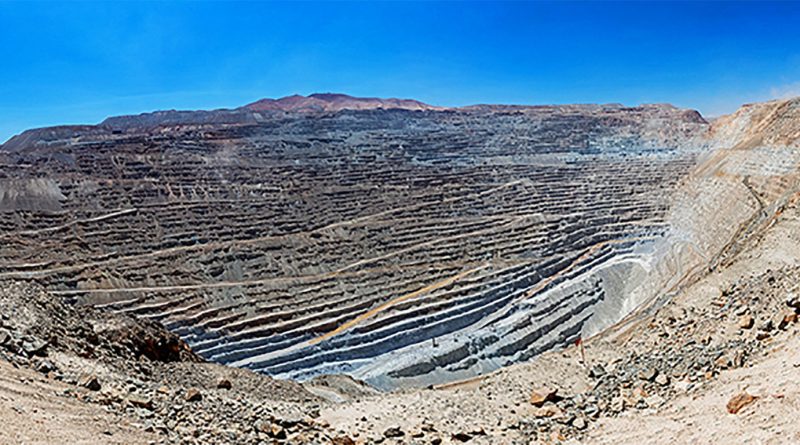US and Indonesia Explore EV Minerals Partnership
The United States and Indonesia have initiated talks that could reshape the landscape of electric vehicle (EV) production. The focus of these discussions is a potentially critical EV minerals deal, with nickel taking center stage.
The US-Indonesia Partnership: A Game Changer for EV Minerals
The recent discussions between the United States and Indonesia signal a strategic move aimed at securing a reliable supply chain for essential EV minerals, particularly nickel. Indonesia’s proposal for this partnership comes on the heels of the US Inflation Reduction Act bill, which has allocated approximately $400 million (€374 million) to enhance US energy efficiency.
Nickel, a fundamental component in EV batteries, has become a focal point in these talks. The US faces a challenge with limited nickel reserves, primarily relying on the Eagle Mine in Michigan, which is projected to wind down production in the coming years. Moreover, attempts to establish new nickel mines, such as Talon Metals’ Minnesota mine, have encountered resistance from local and indigenous communities, drawing criticism regarding the accessibility of domestic nickel supplies.
In contrast, Indonesia stands as the world’s largest nickel producer, contributing approximately 1.6 million tonnes in 2022. The country boasts a substantial reserve of around 21 million tonnes of nickel. Indonesia’s significance extends beyond nickel, as it also possesses reserves of cobalt, another critical metal for EV batteries, and is a major tin producer, used to enhance EV performance.
Environmental Considerations
While the potential partnership holds promise for addressing the US’s nickel deficit, environmental concerns loom large. Nickel mining is notorious for its significant ecological footprint, with detrimental effects including deforestation, air and water pollution. Moreover, miners often face health issues linked to toxic metal dust exposure.
Indonesia’s relatively lax environmental, social, and governance (ESG) regulations for mining companies have raised concerns about sustainable and responsible mining practices. The absence of robust regulations could potentially enable companies to sidestep environmental safeguards, posing a threat to the environment and local communities.
Efforts towards Sustainability
The environmental challenges associated with nickel mining have not gone unnoticed. Several major nickel-producing countries, such as the Philippines and Australia, have taken steps to close or phase out nickel mines in recent years. However, these actions have had minimal impact on curbing the growing nickel demand for EVs, forcing producers to grapple with the delicate balance between increased demand and sustainable mining practices.
To address sustainability concerns, the industry is witnessing the establishment of larger nickel processing plants even as some mines shut down. Notably, Tesla, a prominent player in the EV market, has played a pivotal role in driving increased nickel demand. Tesla’s CEO, Elon Musk, has gone a step further by offering substantial contracts to sustainable miners, highlighting the EV giant’s commitment to environmentally responsible sourcing.
High-Grade Nickel: A Precious Commodity
Another factor affecting the nickel market is the preference for high-grade nickel ore, also known as nickel sulphate or Class 1 nickel. While Class 1 nickel is in high demand, it is not widely produced. The majority of nickel mined globally falls into the category of nickel pig iron, which is of lower grade and requires extensive processing. Consequently, this has led to the establishment of new processing plants to meet the growing demand for high-quality nickel.
Market Dynamics and Geopolitical Factors
The nickel market has experienced significant turbulence in recent years, influenced by various factors. Indonesia’s decision to ban nickel exports in 2020 aimed to encourage more domestic processing of the metal, attracting foreign investment in the country’s mining sector.
Furthermore, the London Metal Exchange’s (LME) nickel short squeeze in the past year resulted in a temporary halt to nickel trading, further complicating the market. The Russia-Ukraine conflict has also played a pivotal role in disrupting nickel supply chains, as Russia is one of the largest nickel producers. Sanctions imposed on Russia have significantly constrained the transportation and export of nickel by Nornickel, the country’s leading nickel mining company.
The ongoing talks between the United States and Indonesia regarding an EV minerals alliance, with a primary focus on nickel, hold immense potential for shaping the future of the electric vehicle industry. While the partnership could alleviate the US’s nickel shortage and enhance its EV production capabilities, environmental concerns and the need for responsible mining practices remain significant challenges.
As the global demand for EVs continues to surge, the quest for a sustainable and reliable supply of essential minerals becomes increasingly vital. The establishment of high-grade nickel processing plants and Tesla’s commitment to sustainability underscore the industry’s dedication to addressing these challenges. The geopolitical dynamics of the nickel market, influenced by factors such as export bans and international conflicts, further highlight the importance of diversifying supply sources.
The US-Indonesia EV mineral alliance represents a pivotal step in the electric vehicle revolution, signaling a commitment to securing the resources necessary for a sustainable and electrified future. However, the successful realization of this partnership will hinge on responsible mining practices and environmental considerations, ensuring that the growth of the EV industry aligns with global sustainability goals.
